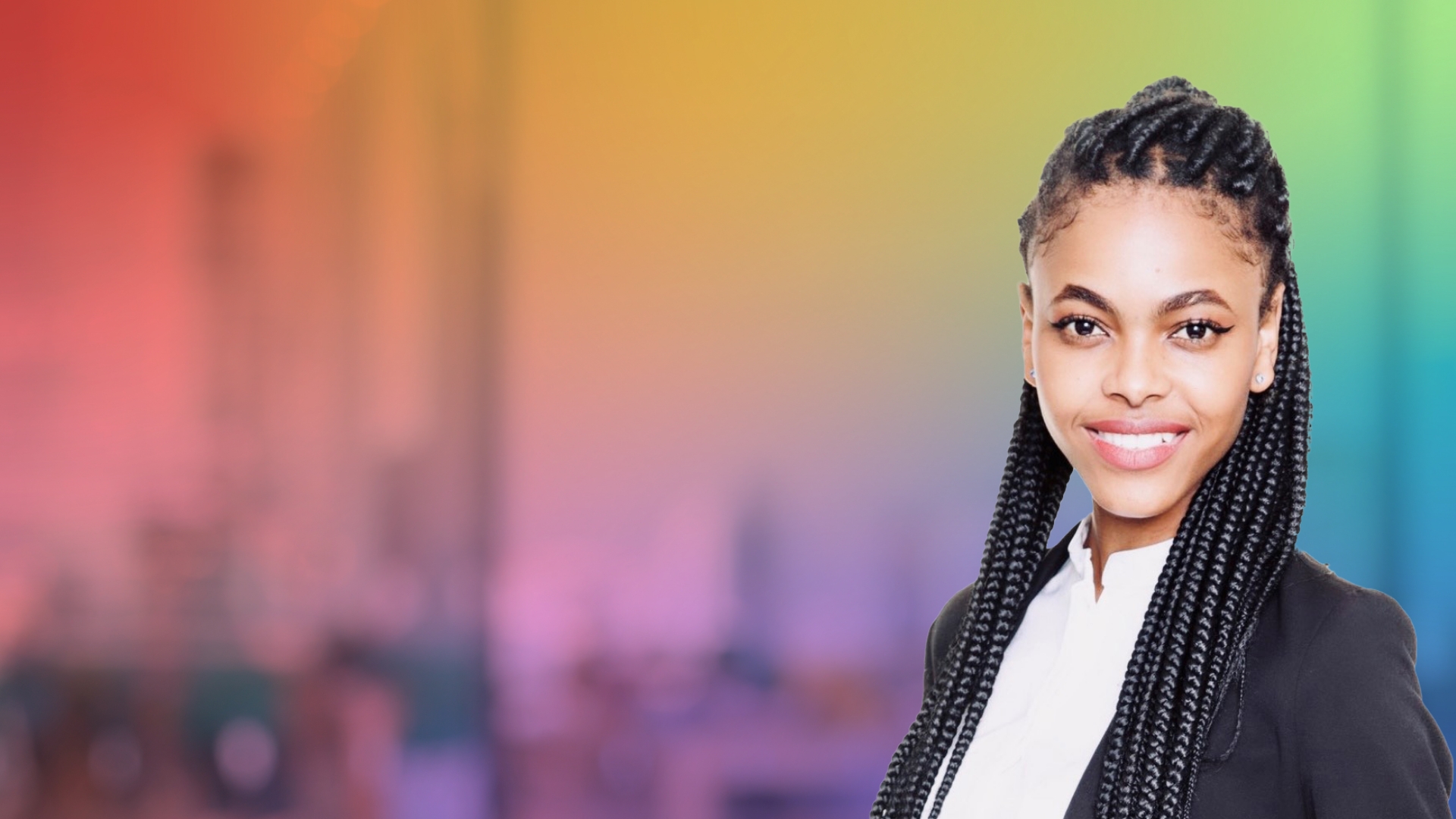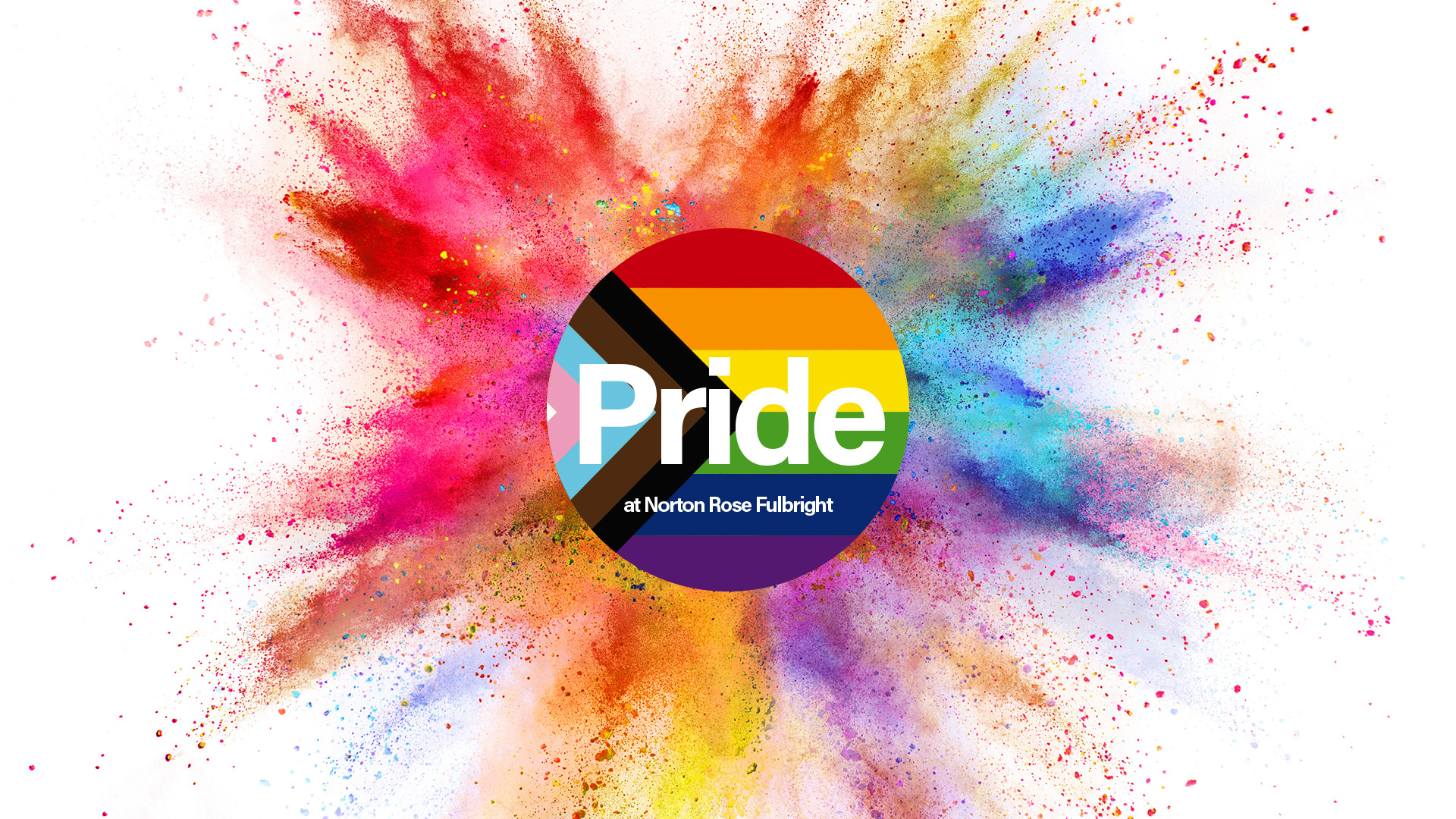Paulette Khumalo is an Associate in our Johannesburg office in South Africa. She discusses the dangers of 'othering' members of the LGBTIQ+ community.
“I don't remember the first time I learned that my mom was homosexual, but I vividly remember the first time I was asked why she wasn't 'normal'."
Growing up in Johannesburg, Paulette was surrounded by family and friends of varying sexual orientations. Some dressed in ways that drew attention to them and some did not. She had never felt a need to question what people looked like, what their partners looked like or how they behaved. She accepted that people were whoever they were.
Still, as a young child, questions such as “Why does your mom dress like a man?" and “Why do you have two moms?" shattered her ignorance of the way the rest of the world viewed her family. She never thought to ask her friends why they had mommies and daddies, and quickly learned that there was nothing wrong with their families, but that there was apparently something abnormal about hers.
“I hated that. I hated being abnormal. I hated not belonging. I hated whenever my parents attended school events. I didn't want to be labelled 'different' for something I had no control over. It was humiliating and isolating for me."
While Paulette knows that the world has begun to attempt to recognise the ways in which all humans are unique, in her view, there is no 'ordinary' when it comes to human beings. We are all 'other' because we are all different from each other.
Due to the power of the internet, vast developments in access to information, and shared stories and experiences, Paulette feels that society as a whole now has no choice but to respond to the calls for recognition of the unique identities of real people in society, and to recognise that there are far more than two gender identities and one type of sexual orientation.
When asked about the developments being made in terms of official forms, documents and surveys now including options beyond the binary for pronouns and sex, such as 'male','female' and 'other', Paulette remarks:
“The intention behind these developments are to facilitate inclusion, however the actual effect is an exclusionary one. To give people the option to label themselves as 'other' unintentionally perpetuates the idea that queer persons are societal outliers."
South Africa's Constitution is the first in the world to prohibit unfair discrimination on the grounds of sexual orientation; and for Paulette, what is interesting to note is that the South African Constitution itself does not use terms such as 'gay', 'lesbian' or any other defining terms for the sexual orientation of a person. It simply provides in section 9(3) that:
“The state may not unfairly discriminate directly or indirectly against anyone on one or more grounds, including race, gender, sex, pregnancy, marital status, ethnic or social origin, colour, sexual orientation, age, disability, religion, conscience, belief, culture,language and birth."
“Having grown up seeing my mom being unfairly 'othered' simply based on how she presents,I think it's important that we aim to raise awareness and to consider the impact of our actions,words and policies which intend to 'include' members of the LGBTIQ+ community who may face discrimination, homophobia and other forms of hatred, without also inadvertently reinforcing the misconception of their 'otherness'."
When asked how we can reconcile this problem, Paulette says: “Real change and the eradication of discrimination on the basis of sexual orientation can only happen when we recognise that sexual orientation does not change the fact that we are all human."
“We all want to succeed. We all want to be loved. We all want to be accepted, no matter who we go home to at the end of the day... If we remember that no one person is ordinary, we will remember that others are not unordinary."




